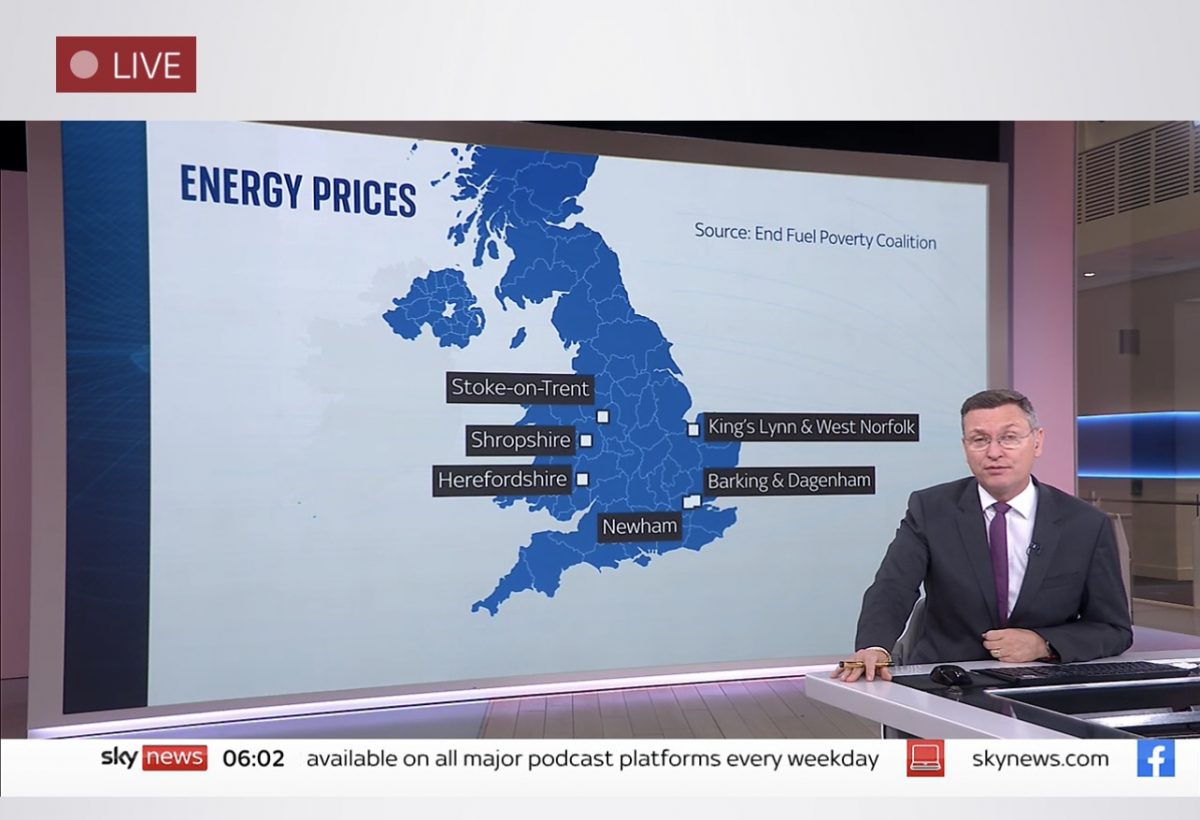Ahead of local elections in May 2022, the Government has been urged to implement an action plan to help local authorities take action on fuel poverty.
The action plan, developed by the End Fuel Poverty Coalition, includes legislation to prevent energy firms from charging more than the lowest tariff for those on pre-payment meters and the introduction of a Windfall Tax on fossil fuel firms’ profits.
In addition to the central Government action plan, candidates standing for election to local authorities across England have also been urged to take action to end fuel poverty.
In a pledge, co-ordinated by the End Fuel Poverty Coalition, councillors and council candidates can pledge their support for ending fuel poverty. The pledge commits candidates to campaign for a range of measures – all of which can be implemented by local authorities – that will help end fuel poverty.
Council candidates can sign up to the pledge online: https://www.endfuelpoverty.org.uk/end-fuel-poverty-councillor-pledge/
Roni Marsh, Money Advice Team Leader, South West London Law Centres, commented:
The government’s annual fuel poverty figures show that the measures taken to address fuel poverty had made only minimal impact by 2020, and of course we know that the situation has become much much worse since then. We not only have clients choosing between heating their homes or eating, they also have to think twice about using energy to heat their food. Urgent action is needed to help those households in fuel poverty.
William Baker, from Solutions to Tackle Energy Poverty (STEP), added:
The single largest rise in fuel bills for over 30 years will lead many people in fuel poverty to turn to their local councils for help.
Councils should do everything in their powers to cushion the shock, whether that is installing improved heating and insulation, providing financial support or enforcing private rental regulations.
However, the government must provide councils with the resources to meet the envisaged rise in demand for council services, as well as take action to correct its own woefully inadequate response to the fuel price crisis.
Chaitanya Kumar, Head of Environment at The New Economics Foundation, said:
People’s bills are going through the roof, and the scourge of fuel poverty is hitting more and more households who just want to keep warm.
It’s vital that the government gives local authorities the resources they need to upgrade homes and immediately protect those on the sharp end of the cost of living crisis.
Emma Lewins, from Students Organising for Sustainability UK, added:
Students were already at a high risk of falling into fuel poverty due to limited knowledge and experience of how to navigate the energy system, poor quality student housing and lower incomes.
With the cost-of-living scandal, this is only getting worse.
Due to the student population’s transient nature, it is unlikely that the existing support will serve students. We need the Government to step up and take urgent action to respond to the fuel price crisis.
The Westminster Government Council Support Action Plan
To support Councils in helping people in fuel poverty, the Westminster Government must:
- Provide a stable and sustainable approach to funding for home upgrades and move away from short-term funding cycles.
- Legislate to prevent energy firms from charging more than the lowest tariff for those on pre-payment meters.
- Enable tenants to use Rent Repayment Orders to reclaim money from landlords in compensation for living in the worst properties for fuel poverty.
- Launch a public information campaign on landlords’ obligations and tenants’ rights on energy efficiency.
- Support Local Authorities to carry out urgent stock assessments across public and private housing and put in place strategies for improving all housing to a minimum EPC C standard within their areas by 2030 for rented housing and 2035 for owner occupier housing.
- Introduce a Windfall Tax on profits of fossil fuel firms to ensure enough money is raised to help those most in need.
The End Fuel Poverty Councillor Pledge
As a councillor, I pledge to do all I can to end the scourge of fuel poverty. I will campaign for:
- Improving energy efficiency of Council / housing association housing stock
- Better enforcement of existing regulations on energy efficiency and property standards in the private rented sector
- Improving private tenants’ rights
- Providing information advice and guidance on energy efficiency and benefits to those most at risk of fuel poverty
- The use of central government energy scheme grants to help those most at risk
- Bring forward the End Fuel Poverty motion to a Council meeting in 2022
- Urge the Westminster Government to implement the End Fuel Poverty Coalition’s Local Authority Fuel Poverty Action Plan.
Council candidates can sign up to the pledge online: https://www.endfuelpoverty.org.uk/end-fuel-poverty-councillor-pledge/



